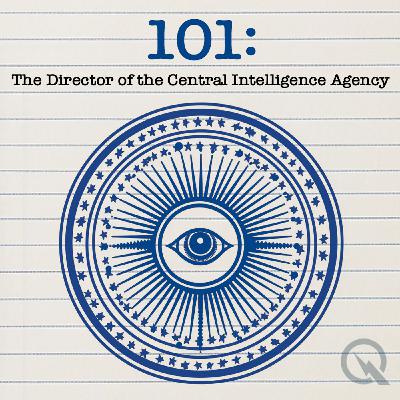"Signalgate Rocks CIA Director: Leaked Chats Expose Classified Intel Breach"
Update: 2025-09-23
Description
In the last several days, John Ratcliffe, the Director of the Central Intelligence Agency, has come under intense public and political scrutiny following an extraordinary leak of a high-level Signal group chat among U.S. national security leaders. This incident, which media outlets are calling Signalgate, centers on a digital conversation from mid-March in which Ratcliffe and other administration officials, including the Vice President, Secretary of Defense, and Director of National Intelligence, discussed operational details about military airstrikes against Houthi targets in Yemen. The controversy escalated when the name of an active undercover Central Intelligence Agency officer was shared in this unclassified chat by Director Ratcliffe himself, according to reporting by The Atlantic and The Guardian.
The leak happened when National Security Advisor Mike Waltz accidentally added Jeffrey Goldberg, the editor-in-chief of The Atlantic, to the chat through a contact mix-up. Once Goldberg realized he was privy to these confidential conversations, he published a partially redacted transcript, which was quickly confirmed as authentic by the White House National Security Council spokesman. Following criticism and calls for transparency, The Atlantic released the full transcript, sparking bipartisan alarm over apparent failures in information security at the highest levels of government.
Multiple media reports have confirmed that the Signal chat included highly sensitive military information, including aircraft, weapons, strike sequencing, and even deliberations about the timing of operations. Participants also vented frustrations about European allies and cost-sharing for Red Sea security. Military and intelligence experts, including former Pentagon officials, warned that naming an active undercover Central Intelligence Agency officer on an unclassified platform might constitute a serious breach of protocol and national security law.
The fallout has been swift and far-reaching, prompting the Pentagon to launch a formal investigation and leading the Senate Armed Services Committee to pressure the executive branch for a full inspector general review. Further administrative leave and resignations have followed, including other top defense officials, as the White House faces growing calls for accountability and possible procedural reforms to how classified information is handled digitally within the intelligence community.
The White House maintains that no classified information reached adversaries and continues to support its national security team publicly. However, leading members of Congress and former intelligence officials have called the episode unprecedented and potentially dangerous, highlighting ongoing vulnerability in the use of encrypted but unclassified messaging applications for official business.
Thank you for tuning in and be sure to subscribe. This has been a quiet please production, for more check out quiet please dot ai.
For more http://www.quietplease.ai
Get the best deals https://amzn.to/3ODvOta
This content was created in partnership and with the help of Artificial Intelligence AI
The leak happened when National Security Advisor Mike Waltz accidentally added Jeffrey Goldberg, the editor-in-chief of The Atlantic, to the chat through a contact mix-up. Once Goldberg realized he was privy to these confidential conversations, he published a partially redacted transcript, which was quickly confirmed as authentic by the White House National Security Council spokesman. Following criticism and calls for transparency, The Atlantic released the full transcript, sparking bipartisan alarm over apparent failures in information security at the highest levels of government.
Multiple media reports have confirmed that the Signal chat included highly sensitive military information, including aircraft, weapons, strike sequencing, and even deliberations about the timing of operations. Participants also vented frustrations about European allies and cost-sharing for Red Sea security. Military and intelligence experts, including former Pentagon officials, warned that naming an active undercover Central Intelligence Agency officer on an unclassified platform might constitute a serious breach of protocol and national security law.
The fallout has been swift and far-reaching, prompting the Pentagon to launch a formal investigation and leading the Senate Armed Services Committee to pressure the executive branch for a full inspector general review. Further administrative leave and resignations have followed, including other top defense officials, as the White House faces growing calls for accountability and possible procedural reforms to how classified information is handled digitally within the intelligence community.
The White House maintains that no classified information reached adversaries and continues to support its national security team publicly. However, leading members of Congress and former intelligence officials have called the episode unprecedented and potentially dangerous, highlighting ongoing vulnerability in the use of encrypted but unclassified messaging applications for official business.
Thank you for tuning in and be sure to subscribe. This has been a quiet please production, for more check out quiet please dot ai.
For more http://www.quietplease.ai
Get the best deals https://amzn.to/3ODvOta
This content was created in partnership and with the help of Artificial Intelligence AI
Comments
In Channel





